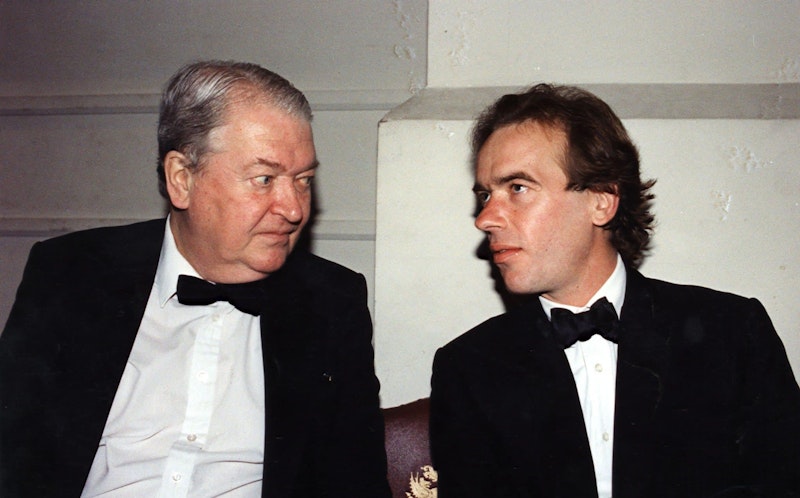My friend Crispin Sartwell, on occasion, wages war with The Atlantic, for I’d guess most readers of what purports to be journalism today have their particular hobgoblins. I do too, as outlined in my columns, most notably op-ed writers for The New York Times and Washington Post (Crispin has a drawn pistol on those fronts, too) and though the likes of Paul Krugman, Thomas Friedman, Maureen Dowd and, well… the entire Post (especially Dana Milbank and Max Boot), are easy targets, that’s simply because in a winnowing field, they’re the most prominent. I do reserve a particular dislike of the Boston Globe’s sportswriter Peter Abraham, who lards his Red Sox coverage with political commentary, and, I might add, he’s a dick online when responding to social media comments.
Like a lot of people I know, not just journalists, I once subscribed to The Atlantic—as well as The New Republic, The Nation, Vanity Fair, Commentary, Interview, Mother Jones, The National Enquirer, The Weekly Standard, Rolling Stone, The New Yorker, National Review, Spin, Egg (!), The Economist, Wigwam, Forbes, Spy, Harper’s, Time, Newsweek, and so on, but that was a long time ago when those publications existed in more than name only (many are now shuttered, including my own New York Press and City Paper weeklies; others, I swear, like Time, are either AI experiments or produced by two I’ll-do-anything-for-a-job kids or retirees—and found it useful and sometimes illuminating. That’s all out the window now, unfortunately, but on rare occasions I’m alerted by an Atlantic post on Twitter and get sucked in.
Last weekend, just after the premature passing of the fine novelist/provocateur Martin Amis at 73—like all but the most spiritual of my contemporaries, anytime the age of the deceased in an obit starts with a six or seven, I shudder—Atlantic staff writer James Parker wrote a short appreciation of Amis and for the most part it’s smart enough. I was, however, annoyed by an anecdote of when Parker saw Amis and Will Self read in Boston in the late-1990s, and the famous author answered a question from a “skinny, baseball-hatted, conspicuously alone” man in the back, who innocently asked if Martin was related to Kingsley Amis. The younger Amis responded that Kingsley was his dad, much to the amazement of Parker. “[I]t seemed a gesture of almost extravagant respect for this estranged figure, the man at the back, the everyman reader.”
Score one for late Amis, for his kind response. Demerits to the condescending Parker—who may or may not be “checking his privilege,” whatever that is in his case, for making fun of the “estranged figure… the everyman reader.” Parker gives no estimate on Everyman’s age, but perhaps he was a college or high school student, embarking on a path of literary excitement, filling in the blanks at a fast pace. Yet in the next paragraph Parker sounds like the fellow he was making fun of: “And [with Amis’ death] I wondered, like a small child, what my world was going to be like without Martin Amis to describe it for me.” He pretentiously concludes: “Because death diffuses, death disperses, death scatters, and if you’re lucky you can briefly catch some of that energy as if flies. It sharpens your eye; it sharpens your taste buds. That’s what Martin Amis did for readers: He made us lucky.”
I’ve read a lot of Martin Amis over the years, novels and essays—some hit, some didn’t—but never felt “lucky” because of his output.
Far be it from me to begrudge Parker his moment of public mourning, but I’d suggest that his world, in a period of days, will carry on even though he’ll no longer “share the same air, moon and politicians” as the late novelist. When Alexander Cockburn died unexpectedly—at least to all but a few—at 71 in 2012 it rattled me, for I’d read his Village Voice column starting as a teenager, and later was fortunate enough to hire him in 1996 as a columnist for New York Press. Cockburn had been done dirty by the Voice more than a decade previously, liked the eclecticism of NYP, and the fat paycheck even more.
On the several occasions that Cockburn came to New York from his California home, he was charming, flirtatious, very funny and caustic, and extremely kind to my wife and two young sons. I would’ve loved to see what Alex had to say about the Trump/Biden era—and it would’ve been sensational in his most contrarian way—but that wasn’t to be. But I don’t require a writer to “describe” the world for me; I may bounce questions off my wife, sons, brothers and nephews and nieces, but hero-worship strikes me as weird, especially for a pedigreed writer like Parker.
—Follow Russ Smith on Twitter: @MUGGER2023

